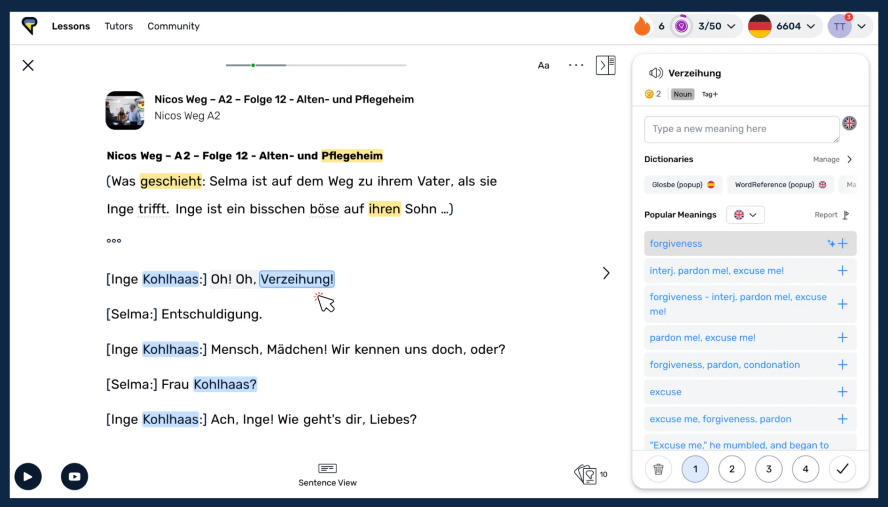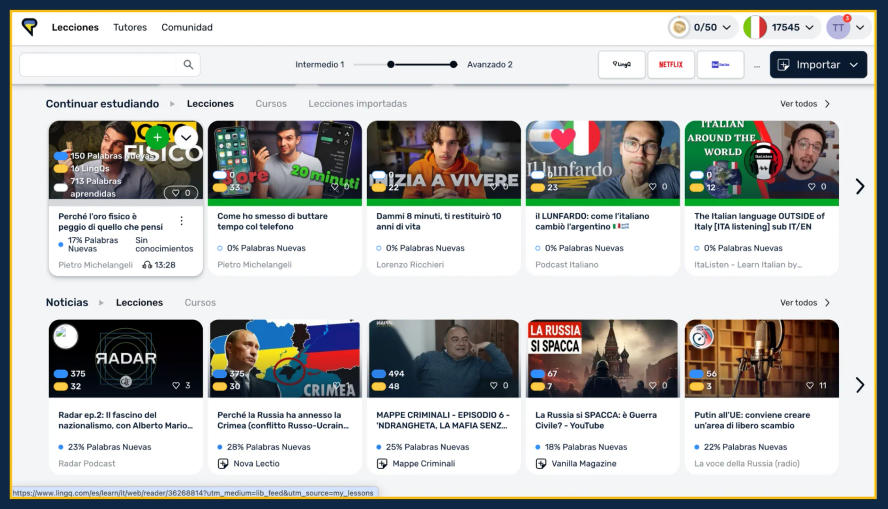Comprehension questions are a staple of traditional language learning. You read a passage, listen to some audio, and then you answer questions to prove that you’ve understood. Sounds logical, right? Well, I never do them. Personally, I’m not a fan of comprehension questions.
Brazilian educator Rubem Alves once said that asking comprehension questions is the surest way to kill a reader’s enthusiasm. And he’s absolutely right! When learning a language, the priority isn’t to remember everything we’ve read. We don’t understand everything. And that’s okay.
The value of reading and listening lies in engaging with the content, not in proving you can regurgitate details on command.
Enjoying Content Without the Pressure
It’s entirely possible—and beneficial—to enjoy a story or an article without understanding every single word. The goal of listening and reading isn’t to pass a quiz; it’s to immerse yourself in the language, absorb patterns, and become comfortable with it.
Instead of drilling yourself with questions, ask: Did I enjoy this? What stood out to me? Of course, you can still practice writing and speaking in the language. However, you could be answering questions that really matter or genuinely spark your interest.
What to Do Instead
Well, if you’re not doing comprehension questions, what should you do instead? Simple:
- Listen a lot. Even if you misunderstand parts, you’re still training your brain. Instead of answering comprehension questions, give the material another listen. Perhaps listen to additional material.
- Read and re-read. Look up words, take in the structure, and revisit the content later. Re-reading material improves your reading flow and your comprehension of the material.
- Engage with the material naturally. If you feel like summarizing or talking about it, great. If not, just move on. Remove as much friction from the language learning process as possible.
- Expose yourself to compelling content. The more interesting it is, the more you’ll want to stick with it (and perhaps write and discuss it).
Why I Use LingQ
You can accomplish all of these tasks on one platform. I use LingQ to read and listen to the target language. I can look up words with just one click, track my progress, and build up a personal library of interesting content in whichever language I’m learning.

LingQ makes reading and listening in another language effortless. I can instantly gauge the difficulty of a text and see my vocabulary grow. Unknown vocabulary is blue. Words that I’ve looked up are yellow. As I come across new words again and again, the yellow fades. Through LingQ, I can visualize my comprehension of a text.

There are vast libraries in more than 50 languages on LingQ. I can customize my library by importing YouTube videos, podcasts, books, Netflix shows and more.

All my learning is automatically tracked so I can see my progress in real-time.
The Myth That Comprehension Questions Improve Learning
Comprehension questions confirm understanding, but they do not enhance your learning. Sure, an argument can be made that comprehension questions encourage re-reading and guided production in the target language. However, if this is an activity that you do not enjoy, it’s counterproductive to your language learning.
The Canadian government created a French-learning app, Mauril, which uses comprehension questions to turn native content into “language learning material.” But here’s the thing—native content is already language learning material. Adding comprehension questions doesn’t improve it. If anything, they disrupt the natural flow of engaging with a language.
Language learning should be about enjoyment and exposure, not about proving comprehension through artificial tasks.
But What About Language Exams?
Of course, if you’re preparing for a test like TOEFL, TOEIC, or IELTS, you will have to deal with comprehension questions. In that case, sure—do some practice tests. It makes sense to familiarize yourself with the structure and expectations of these exams. However, real comprehension stems from long-term exposure to the language, not from answering quiz questions.
Besides, if you want to ace the comprehension section of an exam, you should be reading and listening to massive amounts of content. Build up your vocabulary. Make the language feel natural. Then, when the test comes, answering the questions will be easy. But if you make comprehension questions your primary method of learning, you’re just slowing yourself down.
Final Thoughts
If you love doing comprehension questions, go ahead. But if you don’t, stop forcing yourself. Focus on engaging with the language. Listen, read, and enjoy. That’s what ultimately leads to improvement.









comments on “Why I Don’t Use Comprehension Questions to Learn a Language”